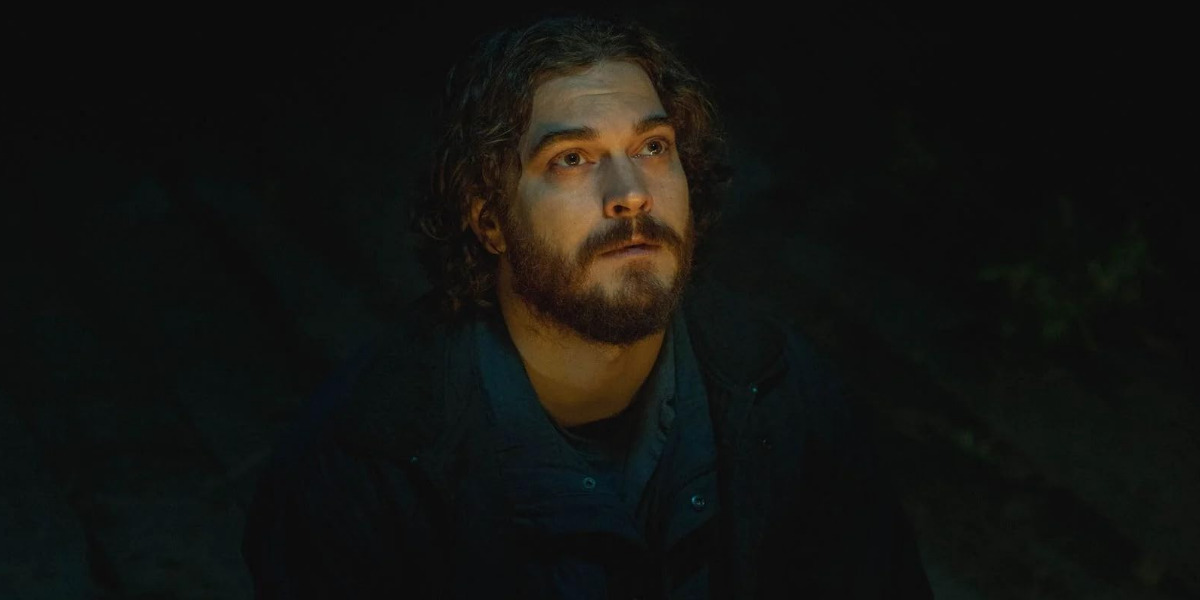The Netflix Turkish drama series ‘Kübra’ presents the larger-than-life narrative of its protagonist, who finds his life turned upside down on the heels of divine interaction. In the streets of Istanbul, Gökhan Ahinolu, a regular worker, confronts a bizarre scenario when he starts receiving texts from a mysterious user, Kübra, on a social media platform. Although he doesn’t pay heed to the texts at first, he’s unable to ignore them once their prophetic nature becomes evident. Thus, under the assumption that the messages are from the almighty God himself, Gökhan undertakes an overwhelming journey of the battle between light and darkness.
Along the way, Gökhan faces pushback and support in varying degrees, and his interpersonal relationships, especially with his serious girlfriend, Merve, are put in jeopardy. The show presents an intriguing premise that pitches societal responsibilities, expectations, and skepticism against religion and faith. As such, its exploration of Gökhan’s unique storyline may lead people to wonder about the show’s origins either in reality or similar fiction.
Afşin Kum’s Kübra, a Fiction Novel
‘Kübra’ is not based on a true story. Instead, the show’s origins can be credited to the 2020 eponymous novel by Afşin Kum. The show harvests its plot and character inspiration from the book, adapting Kum’s story for the screen in varying levels of authenticity. Netflix previously adapted one of Kum’s other works, his debut novel ‘Sıcak Kafa,’ into the show ‘Hot Skull’ in 2022. Just as that adaptation remained relatively faithful to the source material with only a few changes and additions made to the story in its on-screen recount, ‘Kübra’ also strives to maintain authenticity to Kum’s work for the most part.

In turn, since Kum’s work itself is based on fiction, the series becomes rendered in the same, as it charts the fictional story of Gökhan and his mysterious, anonymous correspondent, Kübra. However, in doing the same, the show inevitably touches on some ideas and narratives that help it connect to reality and humanize the protagonist.
For the most part, the show remains a struggle between faith and skepticism, asking the viewers where one can draw a distinguishing line. Although Gökhan has no tangible evidence connecting Kübra’s identity to God, his faith propels him to believe the texts he’s receiving are warning premonitions. As a result, his next conflict emerges from the idea of the correlation between power and responsibility. Gökhan realizes that he must put this newfound resource to good use and bring change in reality by helping others.
The same leads to moral discussions about what one owes to one’s community and how much self-sacrifice is essential for the greater good. Furthermore, once Gökhan makes the decision to undertake the mammoth mission to use his alleged connection with God, he’s met with support and opposition in tandem. Through the same, the narrative gets the opportunity to delve into a complicated social setting and present it through a nuanced lens.
Similarly, the depiction of Gökhan’s personal life as it steadily deteriorates with the introduction of his grand mission also holds a level of realism to it. Gökhan is a war veteran set to put his life back together, starting with his engagement to Merve, his long-term girlfriend. However, once he becomes entangled with Kübra on the online friendship forum, his dedication to his interpersonal relationships dwindles, leaving space only for his social responsibility. Through the same, the narrative gains an understanding of Gökhan’s character, and his undying moral devotion becomes a cornerstone of his personality.
As a result, the viewers are compelled to empathize with Gökhan, even if they can’t relate to his choices. Ultimately, through his experiences and beliefs, the story presents a “what-if” scenario, driving the viewers to wonder what they would do if they were put in Gökhan’s bizarre shoes. Since the idea of individuals claiming to be in contact with God is a commonplace occurrence in the real world, with many instances even paving the way for deadly cults, Gökhan’s story doesn’t entirely feel improbable.
Yet, Gökhan occupies a distinct space within his claims of divine communication, departing him from reality in significant ways, considering his motives seem so detached from the exploitative truth of cults. Thus, the show manages to chart a path divergent from reality while still retaining enough moral and thematic resonance to feel realistic. Nonetheless, outside of its origins in Kum’s book, which the show’s creative team, screenwriters Rana Mamatlioglu, Bekir Baran Sitki, and Murat Uyurkulak expertly adapted under Durul Taylan and Yagmur Taylan’s direction, the show has no ties connecting it to real life.
Read More: Best Turkish Shows on Netflix


You must be logged in to post a comment.